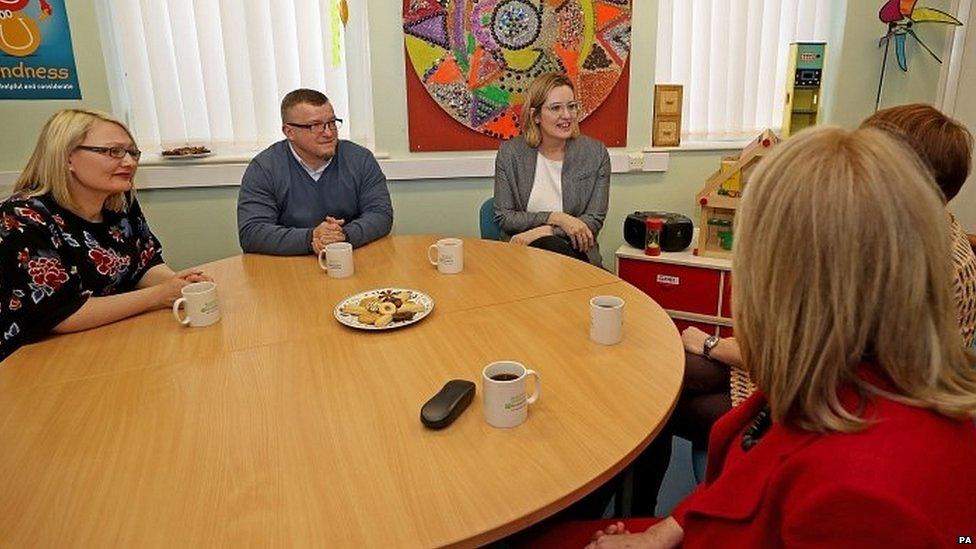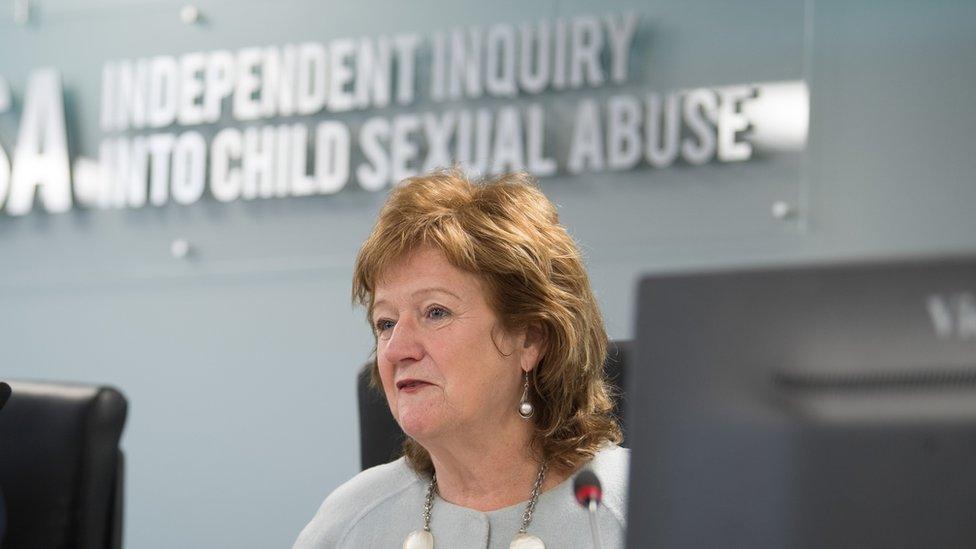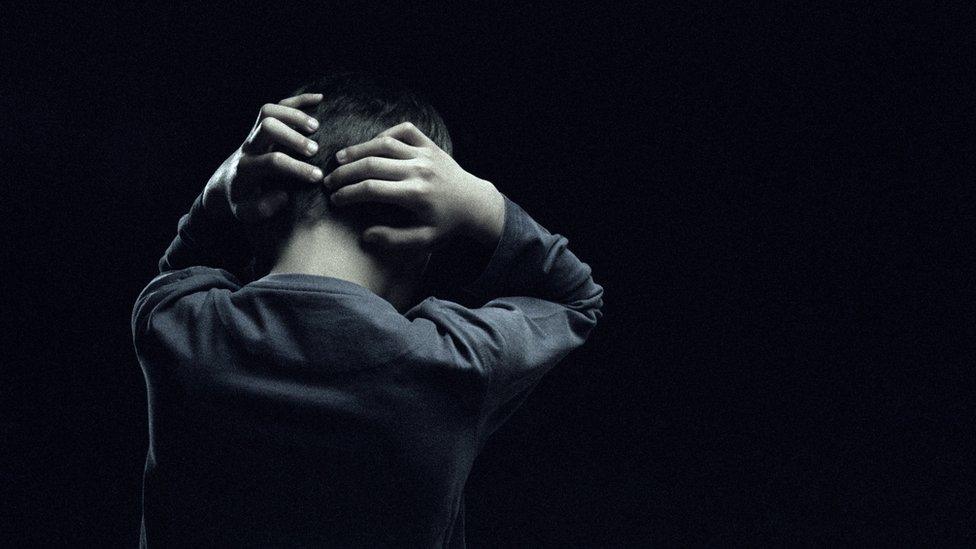Child sexual abuse: Agencies to get £40m funding boost
- Published

Amber Rudd on a visit to Barnardo's Safer Futures sexual abuse service in Salford
Ministers have pledged £40m towards the fight against child sexual abuse, exploitation and trafficking.
The cash will go towards bringing offenders to justice, targeting online exploitation, and protecting vulnerable children at risk of trafficking.
A new £7.5m "centre of expertise" will be set up to offer support and guidance to professionals on the front line.
But councils are warning that a "funding gap" of £1.9bn could put child protection services at risk.
'Stolen childhood'
Children's charity NSPCC says an anti-sexting law is needed to stop adults sending youngsters sexually explicit messages, which "are often the first step in grooming children".
In 2015, the government published a new strategy for addressing failures in child protection across England in response to the Rotherham abuse scandal - in which more than 1,400 children were abused between 1997 and 2013.
Home Secretary Amber Rudd said there had been "several signs of success" since then, including an increase in the recording of contact child sexual offences by police, up 24% over the past year and 130% higher than in 2011-12.

Revised statutory definition of child sexual abuse
Child sexual exploitation is a form of child sexual abuse.
It occurs where an individual or group takes advantage of an imbalance of power to coerce, manipulate or deceive a child or young person under the age of 18 into sexual activity (a) in exchange for something the victim needs or wants, and/or (b) for the financial advantage or increased status of the perpetrator or facilitator.
The victim may have been sexually exploited even if the sexual activity appears consensual.
Child sexual exploitation does not always involve physical contact; it can also occur through the use of technology.

According to official figures, in the year to December 2015 the number of prosecutions rose by 14% while convictions jumped by 19%.
But Ms Rudd will say that the more funding is a recognition that more needs to be done in identifying abuse and protecting the most vulnerable.
"We have increased support for victims of sexual abuse, invested in training and technology to improve law enforcement's response to abuse both on and offline and brought a tougher inspection regime to ensure all frontline professions are meeting their child protection duties," she will say in an article for Mumsnet.
"But there is more to do. The measures I am announcing will further improve our ability to protect children and under my watch I am determined to bring those that would try to steal their childhood to justice."
Trafficking risk
The National Crime Agency will be handed an extra £20m to tackle online child sexual exploitation while a consortium of organisations, including the NHS, College of Policing, the Local Government Association and Barnardo's, will establish a new body to act as a "definitive source" of information and guidance for child protection officers, police officers and other practitioners on the front line.
There will also be extra resources for organisations helping victims of sexual abuse and charitable projects safeguarding children at the greatest risk of trafficking.
The Home Office has also announced that the statutory definition of child sexual abuse has been revised following a consultation earlier this year which concluded the previous version dating from 2009 was ambiguous and "not fit for purpose".
Officials said, among other things, the new definition properly reflected that abuse or child sexual exploitation was always the responsibility of the perpetrator.
Barnardo's chief executive Javed Khan said the centre of expertise would help the consortium "develop a deeper understanding of this abuse so that more children can be protected and helped to recover".
"And thanks to the roll-out of the Independent Child Trafficking Advocates, trafficked children in Hampshire, Greater Manchester and Wales will no longer have to navigate their way alone through complicated statutory systems including health, social care, education and criminal justice, to get the support they need," he said.
Councils in England welcomed the new centre of expertise but warned of a £1.9bn shortfall in funding for children's services by 2020.
Action needed
"It is important the government recognises the wider funding pressures facing social workers and others trying to deliver services for vulnerable children," said Richard Watts, chairman of the LGA's Children and Young People Board.
"While funding individual programmes of work is positive, a co-ordinated long-term strategy and funding to protect all children is vital."
NSPCC chief executive Peter Wanless questioned why the Home Office report makes no mention of bringing in an anti-sexting law, which has been on the statute books for two years but has not yet been enacted.
"For more than two years we have demanded it fix a flaw in the law to stop adults sending sexually explicit messages to children - but it is still dragging its feet," he said.
"These kinds of messages are often the first step in grooming children and if the government is serious about tackling child exploitation, it could take action today."
- Published6 October 2020

- Published24 November 2015
